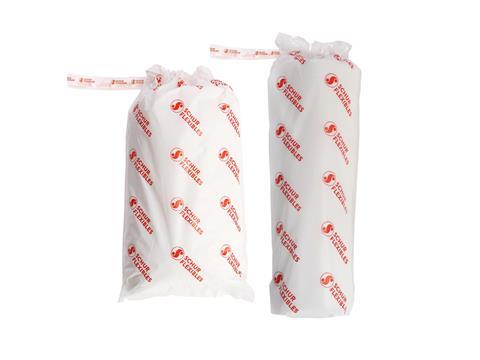
Martin Berlekamp, Head of Sustainability at Schur Flexibles Group, discusses the sustainability initiatives his firm is undertaking to help achieve a greener future.
To help achieve these goals, Berlekamp believes his company’s determination to transform the handling of plastics has been key. “We see our current sustainability transformation as a challenge because society is keen to change the treatment of plastics,” says Berlekamp. “As packaging takes up a high percentage of plastics being produced, we have to find a responsible way to handle sustainability along the value chain. As Schur Flexibles is well prepared with its current and new product portfolio, we can help our customers fulfill their sustainability goals which are often much more demanding than the ones requested by the legislation.”
Schur Flexibles aims to make the majority of its products recyclable before 2025 and already possesses an array of recyclable products in its portfolio, with the company looking to ensure its product materials are responsibly sourced. “Sustainability is a clear management target and the company provides the resources to follow up,” affirms Berlekamp. “In addition to our 2025 target, we also have one for 2020 — we want to provide a recyclable solution to all markets. The aim now is to meet our short-term target and devise a strategy, project plan and ensure resources are in place for the 2025 one.” Although Berlekamp admits that his firm’s 2025 sustainability targets are challenging, the firm is determined to align with the requirements of large supermarket chains. “There’s a lot of work to do. If you look at Carrefour, Tesco, Aldi or Lidl, they have their own sustainability programs,” he says. “These are the targets that customers would like to see in their own shops. As a flexible film supplier, if you’re not capable of delivering recyclable solutions, then you won’t be in operation for very long.”
Fritz Humer, Chief Sales Officer (CSO) at Schur Flexibles Group, argues the company’s growth over the past few years has been significant and says that the future is even more encouraging. “We’re on an exciting journey with customers, markets, and society having a new way of looking at packaging materials,” says Humer. “As a responsible company, sustainability is in our DNA – the proven concepts and established materials, the R&D pipeline, management and entire staff of Schur Flexibles will lead us to being the number one supplier of sustainable packaging solutions. This is the most important part of the growth strategy of the company.”
“Everyone has become a lot more aware of what’s going on in the oceans,” says Berlekamp. “Since that time, customers are more sensitive about packaging materials, particularly plastic ones. It’s become a key reason why the whole community is now looking for sustainable alternatives. They’re coming into a circular economy and it has been one of the biggest challenges because, in the past, the flexible films industry was really developing thin films using multiple polymers. Recyclability is not a given if you have different polymers, and this is why we’re trying to do more for less.”
With a clear idea of how to reduce plastics consumption, Berlekamp believes the best way to tackle reduction is to utilise the thinnest film to help reduce harmful emissions. “The carbon footprint impact of packed foods is around 97%, with the additional 3% coming from the packaging film,” says Berlekamp. “Nevertheless, we have to take care of that 3% because if we reduce that to the sustainable and even recyclable possible solution, then it enables us to decrease the carbon footprint in the easiest way.”
As a member of the CEFLEX and Save Food initiatives, Schur Flexibles is seeking to accelerate its sustainability drive through these organisations. CEFLEX is the collaborative initiative that features a consortium of European companies and associations that represents the entire flexible packaging supply chain. “CEFLEX is very important and has an influence on European legislation because people are now listening,” he says. “I believe it’s good that we have something independent coming from the industry and the value chain of packaging to examine how we can change the future of packaging.” With one third of all food wasted or lost, according to Schur, Save Food exists to drive innovations, promote interdisciplinary conversations and generate solutions to debates across the supply chain. In a joint effort with industry members, politics and civil society, the organisation seeks to collaboratively solve food wastage. “We can help to reduce food waste by ensuring that food is packed with a suitable and recyclable packaging film because it will have a bigger impact on cutting our carbon footprint than just reducing plastic use,” notes Berlekamp. In order to ensure that food is packed correctly, Schur Flexibles has established a key partnership with Nippon Gohsei, a group company of Mitsubishi Chemicals and a producer of EVOH and PVOH providing an appropriate barrier between the product, oxygen and substances such as odd flavors that could contaminate the product. “You need a barrier against oxygen in order to protect valuable proteins like in fish, cheese, and meat. We’re working closely with Nippon Gohsei - also a member of CEFLEX - in order to develop tailor-made barriers and integrate them into our films.”
With a drive to grow through acquisition as well as promoting growth organically, Berlekamp affirms the company’s target is to become one of the biggest companies in its field in Europe. “We positioned ourselves in the market environment with our sustainable and recyclable solutions early and have become – we’re proud to say – the best-in-class,” he affirms. “Since I joined, we’ve purchased two bigger companies and two smaller ones. We’re ambitious — the target is for Schur Flexibles to be among the top five players in Europe. We have to try and balance our growth in packaging materials and look at how we can gain market share from the competition following the launch of new products in the market.”













